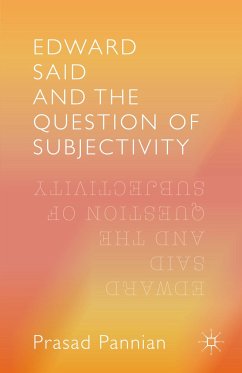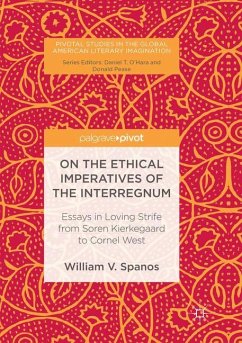
Edward Said and the Authority of Literary Criticism
Versandkostenfrei!
Versandfertig in 6-10 Tagen
43,99 €
inkl. MwSt.
Weitere Ausgaben:

PAYBACK Punkte
22 °P sammeln!
This book examines the earliest writings of Edward Said and the foundations of what came to be known as postcolonial criticism, in order to reveal how the groundbreaking author of Orientalism turned literary criticism into a form of political intervention. Tracing Said's shifting conceptions of 'literature' and 'agency' in relation to the history of (American) literary studies in the thirty years or so between the end of World War II and the last quarter of the twentieth century, this book offers a rich and novel understanding of the critical practice of this indispensable figure and the insti...
This book examines the earliest writings of Edward Said and the foundations of what came to be known as postcolonial criticism, in order to reveal how the groundbreaking author of Orientalism turned literary criticism into a form of political intervention. Tracing Said's shifting conceptions of 'literature' and 'agency' in relation to the history of (American) literary studies in the thirty years or so between the end of World War II and the last quarter of the twentieth century, this book offers a rich and novel understanding of the critical practice of this indispensable figure and the institutional context from which it emerged. By combining broad-scale literary history with granular attention to the vocabulary of criticism, Nicolas Vandeviver brings to light the harmonizing of methodological conflicts that informs Said's approach to literature; and argues that Said's enduring political significance is grounded in his practice as a literary critic.














